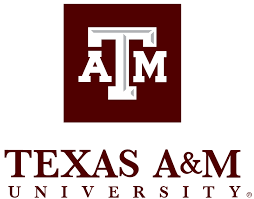15 Best Online EdD Degrees with No Dissertation Programs

Find your perfect college degree
A career in education is one of the most rewarding. Often working in school settings across all levels of learning, education professionals thrive in working with students or formulating initiatives beyond the classroom that can positively impact the educational system.
While an entry-level position in the field only requires at least a degree in education or a related field, many decide to solidify their knowledge and skills by pursuing an advanced degree. It is not uncommon to find teachers and other education professionals who enroll in doctoral degree programs. This necessary step allows them to enhance their credentials and help them achieve higher and more important positions within the academe and related fields.
A Doctor of Education program is an ideal choice for those who want to boost their opportunities of landing leadership positions. It also encompasses other aspects of the education profession, such as curriculum development, learning theory, and public policy. Fortunately, many of these doctoral degree programs are fully available online.
Quick audio summary:
Overview
Online doctoral programs in education help working professionals pursue their terminal degrees while juggling their personal demands at home and work. These education doctorate degrees aid them in preparation to lead various academic levels, allowing them to take on leadership positions and drive change in the educational system.
Doctor of Education Concentrations
Education Leadership
This specialization provides educators with essential tools integral to their success inside and outside the classroom. As educational leaders, they are expected to lend administrative help to school principals, formulate techniques for classroom teaching, and develop initiatives for other educational professionals.
Students in this program are equipped to lead schools and organizations through conducting, interpreting, and evaluating research and data. They are then expected to diagnose and resolve organizational challenges that affect learning success.
Instructional Design
In this specialization, students are trained to examine the relationship between the design of technology, cultural context, digital media, learning, and social interaction. They are exposed to cognition and design theories while being encouraged to dive deep into them and learn how to apply such theories in their practice.
Students who pursue this major have an opportunity to explore a wide range of career paths, including faculty and teaching, administrative posts, and even government or nonprofit positions.
Learning Design
Those who wish to take on leadership roles in the field of education in relation to the latest theories and technologies may want to consider opting for the Learning Design specialization. This option allows students to prepare for strategic leadership roles in a variety of settings, including classrooms and corporations.
In this program, they are expected to master innovative learning practices in the digital context while ensuring their practical applications to real-world problems in the field of education.
Curriculum and Instruction
Designed for educators and practitioners, the curriculum and instruction specialization is an ideal choice for those whose interests lie in teaching in higher education or spearheading program improvements in various settings, such as education, social service agencies, military organizations, or businesses.
The program emphasizes the importance of identifying the obstacles to effective practice and program improvement by evaluating educational and clinical programs and their effectiveness.
Multicultural Education
This specialization is the best choice for students who wish to gain a better understanding of the diverse contexts within the field of education, including sociocultural, political, economic, and linguistic aspects. They will be able to acquire the necessary knowledge and skills needed in teaching, scholarship, and advocacy.
This program is often grounded in common conceptual areas, including critical social theory and schooling, human rights and social movements, and alternative research paradigms, among others.
Special Education
One of the popular majors in many doctorates in education programs, the special education major, prepares the leadership personnel to serve in public or private schools and other educational environments and services. Students are expected to develop knowledge and skills in various aspects, including management, leadership, collaboration, administration, supervision, and program evaluation, among many others.
This specialization is integral in preparing quality leaders who can transform the educational landscape for children with exceptional needs. They can advance their careers by taking on the administrator or executive leader position.
Urban Education
This particular specialization prepares aspiring urban school superintendents, central office administrators, and advocacy organization leaders to lead and transform complex educational systems in urban communities and contexts.
While most of the programs focus on urban school challenges, some recognize the interconnectedness of other issues, encompassing state, national, regional, and global scales.

What is a Capstone Project?
Talking about doctoral degree programs without dissertation-based final requirements, we’re brought to its alternative, which is the capstone project. Its usage and popularity vary across countries’ higher education systems, but here in the country, many degrees feature the capstone project as the final requirement, including doctorate degree programs.
It is sometimes known as a Dissertation in Practice or Problem of Practice Project, and in the context of the doctoral degree, a capstone project is like a practical application period, where doctoral students take their learning throughout the program and use these to address a specific set of real-world problems, often from within their respective areas/workplaces.
It is also multifaceted in that students get to apply their coursework together with appropriate research methods in resolving their chosen problems and working together with their mentors; they often have a degree of freedom to tailor their projects as they see fit.
As with online Management doctoral programs, capstone project often results in innovative solutions that most often get adopted long-term in the settings in which they are applied. Given their practical aspect, the results of capstone projects also add to the overall body of knowledge regarding education and can also be replicated in similar contexts elsewhere.
We might compare the capstone project with dissertation research, but it’s certainly not the case that one is better than the other. It’s simply down to the design of the curriculum and the intended outcomes of doctoral programs. The traditional dissertation process aims to come up with original knowledge, which is why we see it in research-focused Ph.D. degree programs.
Capstone Projects are favored in EdD degree programs that prepare their graduates for their forthcoming higher education leadership roles by giving them a venue for the practical application of their learnings.
How an EdD differs from a PhD
As a whole, more people might have heard of a Ph.D.; after all, it is arguably the most common terminal degree across different higher education systems worldwide. EdD degree programs, on the other hand, are less numerous. So how does a Doctor of Education (EdD) differ from a Doctor of Philosophy (Ph.D.) degree?
As a whole, there isn’t a very wide gulf between the two. They possess many similarities, with both being terminal degrees, that is, the highest degree/title that can be awarded to professionals in their fields, similar to Juris Doctor/JDs for lawyers and MDs for doctors.
Both doctoral programs require significant amounts of research, and students are trained accordingly with appropriate research techniques. Both degrees also require a form of published output from students as one of the requirements for graduation, with their output often published in academic journals.
Still, both degrees tend to have stringent and selective admissions processes, as candidates for the degrees are expected to have the potential to give solid contributions to the field’s body of knowledge. Lastly, both degree programs tend to have roughly the same amount of required credits and can be completed within the same amount of years.
The differences between the two doctoral degree programs lie in some key areas. First, the Ph.D. is more of a research-focused doctoral degree program. The Ph.D. also tends to have a more scholarly focus, with graduates often going on to work within academia and take up research-related roles. By their research-focused nature, the Ph.D. has final requirements that are expected to result in original knowledge, i.e., in the form of a doctoral dissertation.
Meanwhile, an EdD/Doctor of Education degree is generally a practice-focused degree, focusing on sharpening students’ skills through the combination of practice and established research methods. There is also an emphasis on honing educational leadership skills that they can apply to various settings and educational systems, whether K-12, higher education, or others.
This practical application is generally centered on a problem/set of problems that have been identified by the student together with their mentors. This is why students’ final requirements are often in the form of capstone projects. As a result of this practice-focused curriculum design, the EdD doctoral program opens a broader range of non-academic roles that graduates can enter into aside from within the educational system, such as leadership positions in government agencies or the private sector.
Top 15 Doctor of Education Online Programs Without Dissertation
Nova Southeastern University

Doctor of Education in Educational Leadership
Aiming to help students move education forward at various levels, Nova Southeastern University offers the online Doctor of Education in Educational Leadership degree program. This doctorate degree online helps them solve real-world problems through project-based planning and implementation. They will be taught to formulate innovative ways to improve the school and boost administrative competencies.
Unlike Ph.D. programs that are often research-heavy with their rigorous dissertation process, an education doctorate provides students with a hands-on learning experience. To successfully earn this degree, students need to complete a doctoral capstone project. They can choose among two options, but if they want to do away with the traditional dissertation, then opting for the Strategic Research Project is the best choice.
This degree is one of the online doctoral degree programs that is designed for practicing superintendents, principals, and lead teachers from public and nonpublic K-12 learning institutions. They must have a master’s degree in education or a related field in order to get admitted into the program.
Texas A&M University

Online Doctor of Education in Curriculum and Instruction
Students who wish to specialize in leadership roles within the education system with an emphasis on curriculum development will want to consider earning a Doctor of Education in Curriculum and Instruction from Texas A&M University. Like other online EdD programs, this specialization allows one to complete the coursework at their own pace through a web-based delivery system.
Requiring the completion of 64 credit hours, this degree focuses on three major goals of the program, including leadership, discovery, and application of knowledge. Students are expected to acquire the necessary skills and knowledge in curriculum and instruction, preparing them for new leadership roles within the domains of educational practice. This includes roles in school change and improvement initiatives, professional development, curriculum leadership in schools or districts, and organizational management.
Students wishing to get admitted into the program must have earned a master’s degree and a minimum of five years’ worth of teaching experience.
Vanderbilt University

Doctor of Education in Educational Leadership and Policy Curriculum
Vanderbilt University offers one of the quality online EdD programs under its Department of Leadership, Policy, and Organizations. The Doctor of Education in Educational Leadership and Policy Curriculum aims to bridge the gap between theory and practice. The online program can take 36 months to complete, designed to accommodate the needs of mid-career K-12 and higher education professionals.
The online format of the program means that working professionals in the field of education can still pursue their doctorate degree without compromising their blossoming careers. Students are equipped with robust knowledge and skills that will help them make a positive impact on education policy and practice. The program accounts for 84 credit hours, 30 of which can be admitted as credit transfers from a prior master’s degree.
As one of the online EdD degrees with no dissertation programs, this doctorate degree culminates in a capstone during the third and final year of study. Students must need to complete a year-long independent research and analytic task within a group project.
Liberty University

Online Doctor of Education in Administration and Supervision – Educational Leadership
Liberty University offers various online doctorate programs in education. Among the options is the Doctor of Education in Administration and Supervision – Educational Leadership. Designed for students who are preparing for licensed school administration, this terminal degree provides studies and training integral to the management of education organizations.
By the end of the program, students are expected to learn all about education law and policies, leadership principles and ethics, and issues and trends in learning technologies. Some of the courses they cover in this online degree program include Educational Leadership and Public Relations, Theories of Educational Leadership, Advanced Learning Theory and Research, and Advanced Education Law, among others.
The degree is specifically designed for licensed educators pursuing endorsements in administration. To be qualified, they must document an active, renewable teaching license and a full-time contractual teaching experience under a license.
Spalding University

Doctorate of Education in Leadership
Spalding University boasts one of the interdisciplinary and dynamic online programs with its Doctor of Education in Leadership degree offer. This program is designed for those who want to earn their terminal degree and take on leadership roles within the school system.
The courses in this program are delivered one at a time, which means one can earn their degree within two years while juggling their personal and professional responsibilities. This degree will help students stand out as exemplary practitioners of ethical organizational leadership. Some of the courses included in the curriculum are Systems Theory and Leadership, Ethical Leadership, and Research Methodology and Problem-Solving.
For admission, students must meet the program requirements, such as a master’s degree from an accredited university and a GPA of 3.0. They must also submit their resume along with two letters of recommendation, a critique of a journal article, and official transcripts from the learning institutions they have previously attended.
Nebraska Methodist College

Online Doctorate in Education and Leadership in Healthcare
The Doctor of Education in Leadership and Healthcare offered by Nebraska Methodist College allows students to accelerate their careers without compromising their pursuit of a terminal degree. The program’s online format allows them to find the right balance between their personal and professional life.
The program curriculum focuses on honing their knowledge and skills in transforming organizational culture through the use of concepts like reflection, relationship building, education, accountability, and organizational awareness.
Instead of an arduous dissertation process, students only need to complete a scholarly doctoral practice project where they can demonstrate the effective application of the theories and concepts to address education and practice issues.
The program can be completed within 24 months if students are enrolled full-time. Part-time students will be able to earn the degree in 36 months.
The University of Mississippi

Online Doctor of Educational Administration
The University of Southern Mississippi offers an online doctor of educational administration with no dissertation requirement. This 54-credit-hour degree can be completed within three years and is accredited by the Council for the Accreditation of Education Preparation (CAEP).
This program is most suitable for those looking to attain leadership roles in schools, helping them become an effective administrator at a district level. Students will gain real-world experience in solving on-hand issues as they work their way through the program. They will tackle theories of teacher supervision, school budgeting and finance, and educational leadership, among others.
Students can also avail of scholarship opportunities. In fact, the university offers an Online Student Scholarship program that grants first-time, fully online students with $500 for their first semester. The admission process requires a copy of the student’s current educator license with at least three years of teaching experience.
Virginia Commonwealth University

Doctor of Education in Leadership
Virginia Commonwealth University offers a Doctor of Education in Leadership that can be completed entirely online. The 48-credit hour program has a 36-month/3-year completion time frame and is based on a cohort model, which they call a Learning Community. Each Learning Community, in turn, has cohorts that are based around the learning areas:
- Higher Education Leadership
- K12 Leadership
- General Leadership
The program begins each summer and features an action-oriented curriculum design that is anchored on principles of adult learning. The program’s curriculum design is also anchored on the analytical lenses of equity, accountability, and learning theory to facilitate learning through common perspectives. The degree program helps prepare students to become effective leaders in various careers.
While the program is delivered entirely online, students are required to attend a brief 2 to 3-day in-person residency every summer at VCU. This facilitates building relationships within the cohort, and provides students with guidance and support in the program.
As a final requirement, students participate in a 3-semester long collaborative capstone project called a Dissertation in Practice, where they work with a faculty chair and a community-based partner.
East Tennessee State University

Ed.D in Educational Leadership
Ed.D in Global Sport Leadership
East Tennessee State University offers two online doctoral degree programs: an Ed.D in Educational Leadership and an Ed.D in Global Sport Leadership. The former has three concentration areas and leads to a dissertation as the final output, while the latter leads to a capstone program as the final requirement.
The Ed.D in Global Sport Leadership is a unique 60-credit hour program and is aimed at preparing students for leadership positions in today’s highly competitive sports industry, whether at the academic or professional levels. The degree program is delivered 100% online and follows a cohort model.
In order to deliver a truly global perspective in sports, the degree program has global study abroad components on top of standard coursework. The degree requires students to attend international sporting events, which ultimately feeds into the final Doctoral Capstone Project.
University of Virginia

Ed.D in Curriculum & Instruction
The University of Virginia offers its Ed.D in Curriculum and Instruction as an online program. It is designed to prepare graduates to be effective practitioner-scholars who excel in localized problem-solving within settings that are focused on the areas of curriculum, instruction, and assessment. The degree program has a minimum of 72 credit hours and follows an asynchronous model.
In a nod to providing a flexible degree program, UVA lets students map out their own personalized academic plans, which adapt to their previous commitments. This highly adaptable and individualized arrangement conceivably lets students fulfill their coursework from anywhere in the world. Likewise, the degree allows up to 24 credits to be transferred in, provided that these were earned at an accredited institution within ten years of admission to the program.
The program’s final Capstone Project consists of 10 credit hours. 6 of these credits are dedicated to Field Study, where students are challenged to perform unpaid fieldwork at an education-related partner organization, addressing a specific Problem of Practice in the process.
Morehead State University

Morehead State University offers its Doctor of Education degree program in a flexible self-paced online format. The program is aimed at preparing students to become practitioner-scholars who can assume multiple roles in educational leadership, all working towards the goal of improving educational attainment.
Morehead State’s Doctor of Education program has a choice of 4 specialization areas, namely Adult and Higher Education, P-12 Administrative Leadership, Educational Technology Leadership, and Exceptional Child Leadership, with all paths amounting to a total of 60 credit hours.
Each Specialization has its own further emphasis area, and while there are a set of emphasis areas pre-planned by faculty, they are meant to be flexible and can be adapted by students accordingly to fit their individual plans, aspirations, and professional interests.
As part of their final requirement, students must complete a doctoral capstone project regardless of their specialization area. This consists of a total of 12 credit hours.
West Texas A&M University

Doctor of Education in Educational Leadership (Ed.D)
West Texas A&M University offers its Doctor of Education in Educational Leadership as an online program that has a total of 60 credit hours and lasts three years. The program also follows a cohort model and equips students with a skillset of great depth that can enable them to lead any school district of various sizes and locations. Students can also transfer up to 12 credits in the program.
While the program provides excellent leadership preparation for its students, it is designed with two distinct tracks aimed primarily at providing leadership to rural schools. The Doctorate of Educational Leadership track is focused on problems of practice in rural school settings, such as school districts that serve less than 1,000 students (it is noted that this is the case for 50% of school districts across Texas).
The Doctorate of Leadership in Higher Education, meanwhile, is designed for those who have Master’s Degrees in areas other than educational leadership but want to hold administrative positions in a higher education environment or in educational settings that serve rural schools and communities.
Instead of the traditional dissertation, both tracks have a Doctoral Capstone Project as part of their final requirements. Students’ scholarly work throughout the program’s three years is meant to result in an extensive literature review, as well as two publication-ready articles.
Eastern Washington University

Doctor of Education in Educational Leadership (Ed.D)
Eastern Washington University offers a 78-credit hour hybrid Doctor of Education in Educational Leadership program. The program follows a cohort model, and students can attend the program part-time or full-time.
The program has two concentration areas: PK-12 Education, and Higher Education. It features a curriculum design that is geared towards the goal of achieving socially-just transformative leadership in educational settings at the local, state, regional, and national levels. To this end, students take courses on educational leadership, research, and applied practice on top of their chosen specialization areas.
As part of the final requirements, students have a choice of completing either a dissertation or a capstone project in order to target a specific problem of practice that they have identified.
University of Illinois Chicago

Ed.D in Urban Education Leadership
Located in one of the country’s biggest cities, the University of Illinois Chicago offers an EdD in Urban Education Leadership. This nationally recognized program is designed to prepare and develop education leaders, primarily principals, to become effective leaders in urban school settings and work towards significantly improving teaching and learning in this milieu.
The intensive and highly selective program follows a cohort model and consists of a total of 80 credit hours, or 96 credit hours if the Superintendent’s Endorsement is included in the EdD.
The selection preference is on candidates that have exhibited instructional expertise and success in leadership roles, as well as a strong commitment towards improving schools and learning, given the high-need context of the area immediately served by the university.
The program features in-depth coursework that is designed to be immediately applicable and has individual courses that build upon each other. Students in the program likewise get on-the-job coaching throughout their stay in the program, as well as a full year of internship under a mentor-principal.
Wilmington University

Ed.D in Educational Leadership
Ed.D in Higher Education Leadership
Ed.D in Organizational Leadership, Learning, and Innovation
Wilmington University offers 3 Doctor of Education degree programs that are delivered in a variety of formats. The Ed.D in Educational Leadership (49-51 credit hours) is a hybrid program, while the Ed.D in Higher Education Leadership (51 Credits) and Ed.D in Organizational Leadership, Learning, and Innovation (54 credit hours) are offered in traditional on-campus, hybrid, and fully online formats. All three are also offered in Wilmington University’s FLEX format, which lets students attend classes synchronously online or face-to-face.
The three-degree programs are all designed with the aim of preparing students to effectively take leadership roles in their respective settings, whether they be school districts, higher education, or organizations. Students also get to choose from concentration areas in each degree program and are trained in skillsets that involve practical problem-solving as leaders.
As part of their final requirements, all three degree programs conclude in a doctoral capstone project—also known as an Applied Inquiry Project or a Dissertation in Practice Project—and are primarily focused on applied research aimed at a problem in practice identified by the student together with their advisor.
Typical Career Paths for Doctor of Education Graduates
University President
Often considered equivalent to a CEO of a major corporation, a university president’s responsibility extends to overseeing both the academic and administrative operations of an educational institution. Most of them concentrate on enrollment rates and student GPAs, all the while making sure that the school stays within budget. They are also tasked to set and maintain school policy and to give recommendations for changes and improvement if warranted.
As of 2022, the median annual pay for a top executive is $100,090. Beyond educational qualifications, becoming a university president draws more from experience in education and administration.
Chief Learning Officer
The role of a chief learning officer in an organization is to take charge of the learning strategy. They are primarily responsible for training employees and making sure to comply with the policies and regulations within the school. This can be done through mentoring and coaching. The chief learning officer also ensures that their workplace standard is met.
The latest statistics say that chief learning officers, also known as training and development managers, can earn a median pay of $120,000 annually.
School Superintendent
As a school superintendent, one makes sure that the daily operations and long-range planning of a school district are running smoothly. They serve as the point person for all district matters. It is their job to supervise school principals and district staff. They are also known to work with school board members and manage fiscal operations.
Sometimes, school superintendents also need to hire staff, solve problems, and lobby for resources. To become one, a superintendent must first gain ample experience in teaching in the classroom and serve as a school principal. A master’s degree is needed to enter this position, but a doctorate degree can amplify their chances of landing the role.
Policy Maker
In educational institutions, a policymaker plays a critical role in ensuring that policies at all levels, from local and state to federal, are done with a systemic approach. They tend to focus on different things, depending on the priorities of the educational institution. Some focus on reducing student absenteeism. Ultimately, policymakers decide the policies that will lead to positive changes that can impact the next generation.
As policymakers, one should have analytical skills and hefty expertise on important subject matters. At the very least, they should have a solid understanding of the complex issues in education, public policy, and legislation.
School Principal
Principals are integral to the smooth higher-level operations in a school. It is their responsibility to create safe learning environments for students and to set the goals that students and teachers should meet. They also make sure that school facilities are safe and protected, often planning regular maintenance of school grounds and equipment.
Beyond the obvious duties, they are also helping shape a vision of academic success for their students. They make sure to cultivate leadership in their teachers and other staff. According to BLS, school principals can get a median annual pay of $101,320.
College Provost
Often considered as postsecondary education administrators, provosts serve as academic chairs or heads of a college department or faculty. They usually report directly to the college or university president. While this position is exciting, it also comes with great responsibilities. Their duties include implementing academic priorities for the university. They make sure that there is a clear direction for the curricula and allocate resources to support initiatives.
Provosts work with department heads, academic deans, faculty, and staff. They often aim to ensure that students will receive a quality education. Annually, they can earn a median pay of $99,940.
Curriculum Director
Hired by the school board, a curriculum director sets out an effective educational program in place to help students realize their learning potential. They often work closely with teachers when implementing and overseeing a high-standard curriculum. They make sure to provide solutions and initiatives that can meet the unique challenges of a particular school board.
Curriculum directors are expected to be good at planning and evaluating as well as developing a team. Their work also involves developing instructional materials and assessing their effectiveness. Every year, their median pay is around $66,490.

Frequently Asked Questions
How long will it take to finish an online EdD program?
The answer will often depend on whether students are earning the program full-time or part-time. It also depends on the term starts available in a higher learning institution. Typically, a Doctor of Education program will take two to three to complete. For schools with multiple term starts and accelerated program options, the duration can be significantly cut. Other factors that can affect the program duration also include specializations and transfer credit policies.
Students enrolled on a part-time basis will understandably take longer to earn this terminal degree. Working professionals who go through the coursework at their own pace may take four to seven years in order to complete the program.
Is an online EdD degree worth pursuing?
The Doctor of Education program is offered as an alternative to a Doctor of Philosophy in Education, which is heavier on research. An Ed.D. program is more of a practitioner’s degree, making it a suitable choice for academic researchers and college professors. Those who work in K-12 schools or pursue a position as college administrators will find this degree quite useful.
A doctorate in education can help grow one’s skillset and boost their earning potential. It is especially valuable if they are aiming to attain positions in education and educational administration. This includes job positions such as education administrators, superintendents, provosts, academic deans, and so much more.
What are the most common admission requirements to an EdD program?
The admission requirements to a doctor of education degree program may vary from university to university. Generally, one is required to hold a master’s degree from an accredited institution. They must also have demonstrated experience in educational roles along with leadership potential. Other requirements may include the following:
- Graduate admission application
- Official transcripts from undergraduate and graduate institutions
- Resume or curriculum vitae
- Personal statement
- Letters of recommendation
What are the common requirements for admission into online EdD programs?
As is the standard with all graduate degrees, applicants to EdD programs are expected to have passed GPA standards, typically around 2.75 or 3 as a minimum. It varies between universities, but some may also require GRE/GMAT/MAT scores. To prove that applicants have completed both the required Bachelor’s and Master’s degrees, they are required official transcripts, and most universities will prefer degrees awarded by institutions that have regional accreditation.
As previously mentioned, EdDs tend to have a degree of selectiveness and stringency that is typical of doctorate degrees. Universities tend to require applicants to have verifiable references and recommendation letters aside from a CV/Résumé. Most importantly, in order to assess the capability of students to convey their ideas and conduct rigorous academic work, a personal essay from the applicant is typically required, which is complemented by interviews done by university faculty.
As a final note, this is not necessarily a university requirement, but it is a general rule that students enrolling in doctoral degree programs should already have a well-formed seed of an idea or problem they would like to pursue. That way, they would be better able to fit their forthcoming degree plans accordingly, and their mentors would be able to help them better.
Any lack of pre-existing ideas/research problems would be detected in students’ personal essays and subsequent interviews. As they say, never go to battle unprepared, and this is especially true with doctorate degrees.
How much do online EdD programs cost?
There is a wide variance between universities in terms of the total cost of their degrees. They each have their own set of fees that support the university on top of the cost of the degree itself, and some may have different rates for out-of-state students.
To get a rough sense of part of the costs involved, per-credit-hour costs for online EdD programs can range between $600-$1000, and they can have a total of a little more or less than 60 credit hours. To get the most exact costs for tuition, it is best to reach out to the universities themselves, as they will have dedicated personnel that assist students with concerns regarding how to finance degree programs.
However, graduate degrees and terminal degrees, such as online doctorate programs, tend to be on the more expensive side of the tuition costs scale. There are, however, several ways students can offset these costs aside from loans. Federal financial aid is always available, even for graduate students, and students may be able to access grants. It differs between universities, but most will have some form of Scholarship that eligible students can access. Lastly, this may be more toward on-campus students, but Graduate Assistantships are also an option.
What are the benefits of earning a doctorate degree online?
It will invariably require the student to invest in time, effort, and finances, but being a terminal degree, a doctorate degree represents the peak of a professional’s career advancement and educational achievement.
A doctorate degree signifies that one has contributed (and continues to contribute) original knowledge through research, which ultimately benefits the discipline they belong to. On a more practical note, the learnings one gets from the courses in a doctorate degree and the opportunity to apply these are invaluable to students who, by this point, are already working professionals.
Meanwhile, earning a doctorate degree online has the distinct benefit of giving students more flexibility to balance their careers and their coursework. There may also be savings for students since they do not have to attend classes in person. Still, for some, enrolling in an on-campus doctorate degree that they like or that fits them might involve having to move into a new city, which can be a great cost.
Granted, on-campus/in-person classes have aspects that are very hard, if not impossible, to replicate in online classes, but the latter does bring its own set of benefits and advantages.
Key Takeaways
As alternatives to dissertation research, the capstone research project provides venues for doctoral students to provide real-world practical solutions to problems in areas or fields that they believe must be addressed. The practical focus of a doctoral research project is what makes them a good fit for the desired outcomes in Doctor of Education programs.
Like most doctoral degree programs, Doctor of Education degrees have concentration areas. These online Ph.D. programs add specialized courses on top of a degree’s core course content, translating to crucial skills and insights that students can apply to their professional milieu.
Ph.D. Degrees are generally orientated toward research-focused roles within academia and require dissertation research as their final requirement. EdD degrees, meanwhile, have an added applicability toward taking leadership roles; hence they are often designed with capstone projects that enable online doctoral students to apply their knowledge to solve issues relevant to their field.
Additional Resources:




